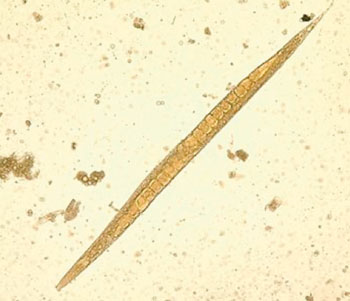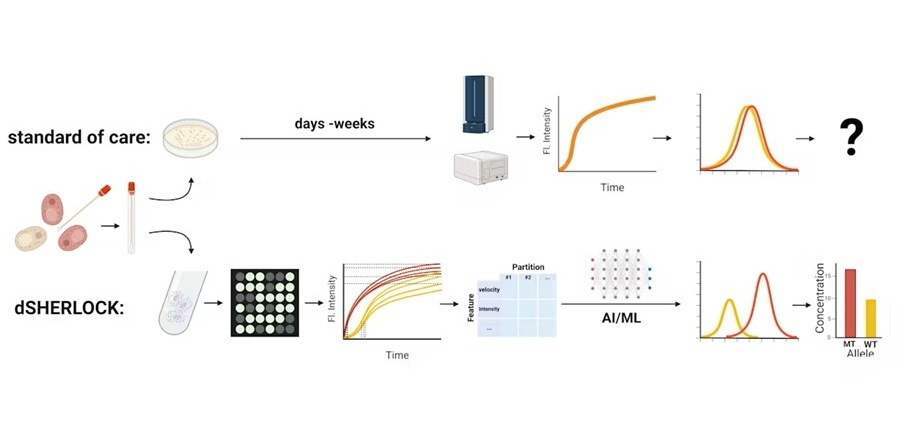Rapid Serological Assay Developed for Strongyloidiasis
By LabMedica International staff writers
Posted on 20 Aug 2014
Several imperfect methods exist for diagnosing strongyloidiasis and stool examination with microscopic identification of larvae considered the gold standard diagnostic procedure, showing good specificity with experienced staff.Posted on 20 Aug 2014
Individuals with strongyloidiasis are typically asymptomatic, and the infection can persist for decades without detection. Problems arise when individuals with unrecognized Strongyloides stercoralis infection are immunosuppressed, which can lead to hyper-infection syndrome and disseminated disease with an associated high mortality if untreated.

Image: The adult free-living female Strongyloides stercoralis with a row of eggs within the body of the nematode (Photo courtesy of the CDC - Centers for Disease Control and Prevention).
An international team of scientists led by those at McGill University (Montreal, QC, Canada) obtained 54 positive serum samples that were confirmed by positive stool samples for S. stercoralis from multiple reference laboratories. There were 47 negative control samples consisted of sera obtained from healthy individuals residing in Canada with no prior history of travel outside of Canada and individuals with confirmed diagnosis of other parasitic infections, including trichinosis, and were negative for Strongyloides by an “in-house” enzyme-linked immunoassay (ELISA) (NRCP).
The team developed a rapid and sensitive serodiagnostic assay for strongyloidiasis based on a 31-kDa recombinant antigen from S. stercoralis (NIE) using a novel diffraction-based optical biosensor technology. The panelPlus oligonucleotide-based addressing system was used for NIE immobilization onto dotLab Sensors and All assays were performed on the dotLab mX System using panelPlus D Sensors (Axela, Inc.; Toronto, ON, Canada). All serum samples were also tested by an NIE ELISA that was developed and validated.
The assay readily differentiated S. stercoralis-infected patients from controls detecting 96.3% of the positive cases, and with no cross reactivity observed in the control group. These results were in excellent agreement with results obtained by an NIE-based ELISA. A further 44 sera from patients with suspected S. stercoralis infection were analyzed and showed 91% agreement with the NIE ELISA. The novel, high-sensitivity diffractive optics technology (dot) platform generated results in less than 30 minutes and is fully automated requiring minimal user intervention. This makes it potentially attractive for near-patient testing and for use in regions where technical expertise or adequate laboratory facilities may not be available.
The authors concluded that with the ability to create custom multiplex assays using the panelPlus oligonucleotide-based addressing system, the dotLab mX System could also be used further to improve Strongyloides serodiagnostics by incorporating multiple recombinant antigens in a multiplex format or by simultaneously screening for clinically relevant co-infections such as Human T-cell lymphotropic virus type 1 (HTLV-1).
The study was published on August 7, 2014, in the journal Public Library of Science Neglected Tropical Diseases.
Related Links:
McGill University
Axela Inc.













